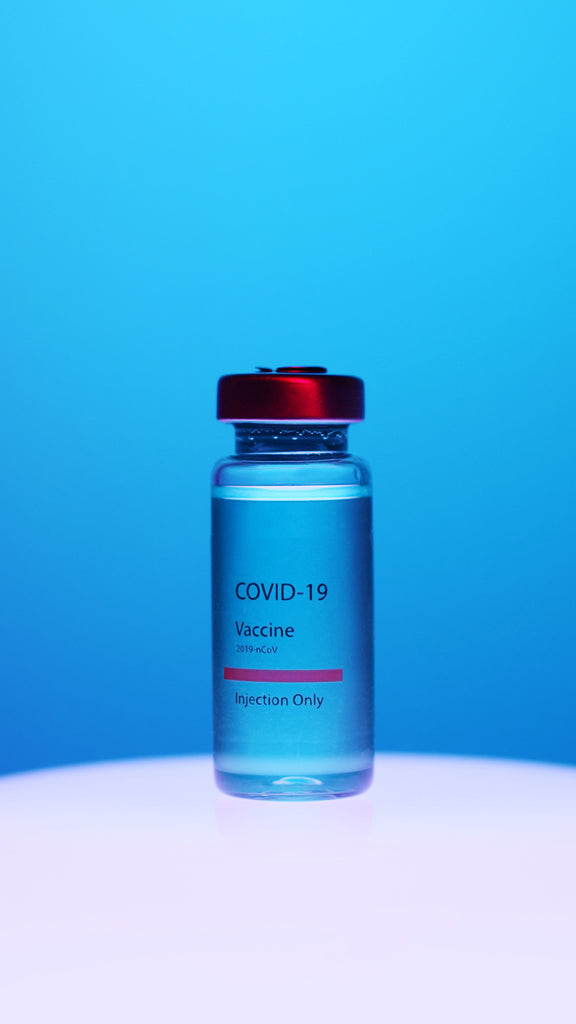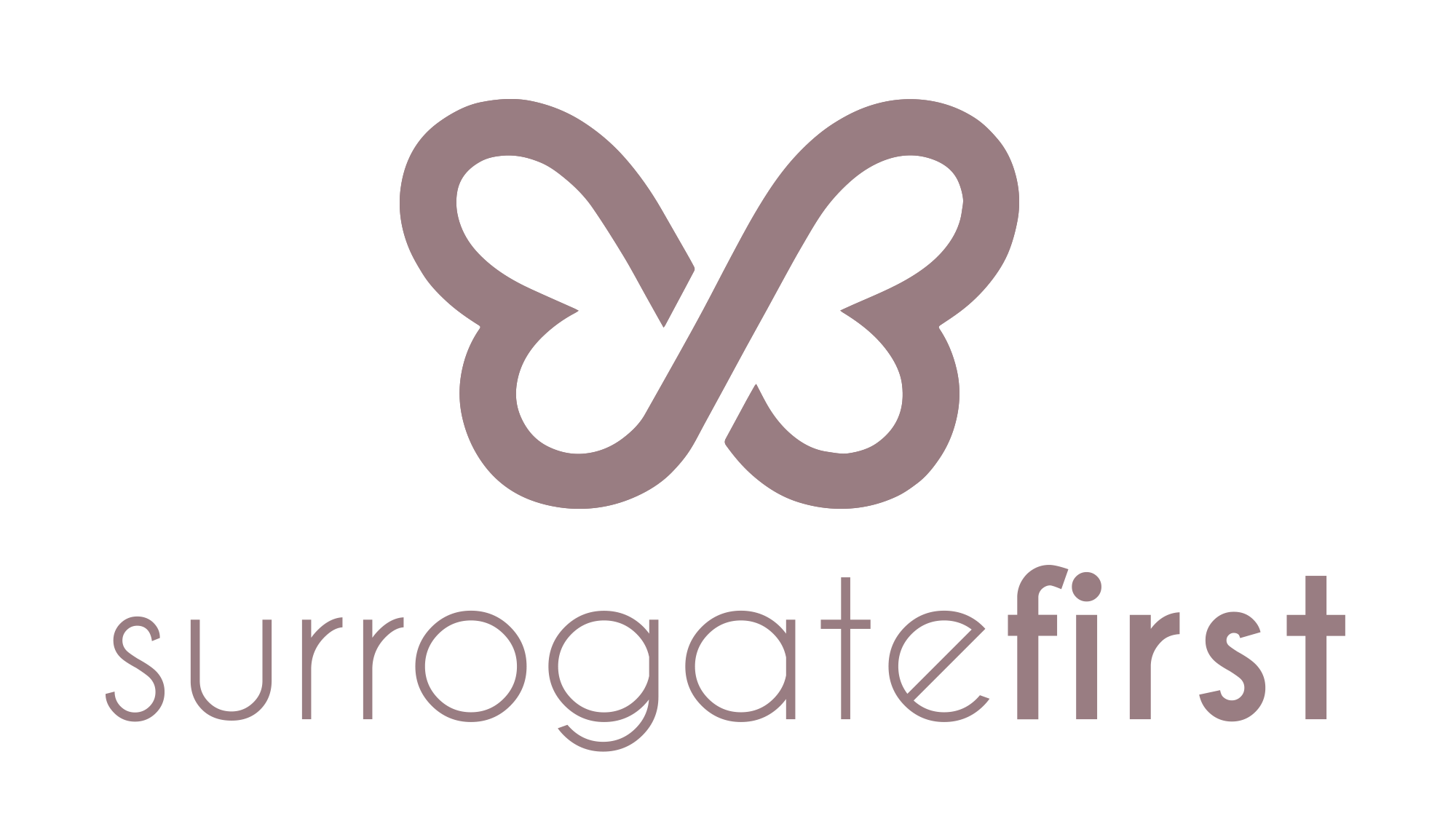We know how difficult it can be to find reliable COVID-19 vaccine information about the COVID-19 pandemic, especially when you’re trying to research vaccine efficacy and safety. There are so many differing opinions online that data-based vaccine science has gotten lost in confusion.
The bottom line is that currently, there are no clinical data to support the hyperbolic assumption that those pregnant and taking the COVID-19 vaccine are at an increased risk, including surrogates who may be worrying about its safety or side effects.
COVID-19 illness leads to higher mortality among pregnant women, not the pharmaceutical drugs and novel vaccines intended to cure it.
As the medical profession’s iconic Hippocratic Oath states, primum non nocere first, do no harm! It’s ludicrous to believe that medical professionals would intentionally, maliciously, and erroneously distribute cures worse than the disease itself. That’s what hard science reveals, and that’s how we’re going to beat coronavirus and start the loving family we’ve always desired.
Our way of life will return, and that’s fantastic news for those planning for surrogacy shortly. Today, pregnant womens health and safety is the top priority, as some evidence suggests that COVID may harm pregnant women at a much higher rate.

We can defeat COVID-19 once and for all if we remember what we’re fighting for: saving lives for years to come after enduring a pandemic way of life in 2020. But expectant mothers aren’t out of the woods yet until mass vaccination finally turns the momentum in our favor.
A look at COVID-19 vaccine facts versus the fiction makes a choice clear for those considering surrogacy in these challenging times.
COVID-19 vaccine approvals in the U.S. much needed hope & promising signs
At the time of this writing, we’ve had some exciting news about vaccine development. Early signs are positive that several COVID-19 vaccines worldwide appear to be 95 percent or more effective at reducing severe illness.
We don’t know whether vaccines will also reduce the pathogens spread, not solely eliminate severe illness. Right now, the emphasis in the U.S. is on slowing the spread, saving lives, and saving them as soon as possible.
We’ve seen much of the media’s attention on vaccines by Pfizer BioNTech and Moderna. As 2020 thankfully winds down, these two vaccines show early promise and, based on recent clinical trials, appear to be safe for the vast majority of the population.
Still, questions abound as to whether or not vaccines will turn the tide in 2021.
Most of us will surely benefit from taking a COVID-19 vaccine, but what does a successful nationwide vaccination program mean for surrogacy? What are the potential adverse effects of novel coronavirus vaccines that are entirely new? Will vaccination harm unborn children?
We’ve come across numerous questions in the surrogate community about what the future holds for intended parents and surrogates alike once most of us receive a vaccine.
Pregnant women endure a higher risk for COVID-19 – cases by the numbers
Take a moment to put these critical COVID-19 pregnancy statistics in perspective. This sobering analysis by the U.S. Centers for Disease Control and shows why pregnant women should be extremely vigilant with public health measures like social distancing.
- Total COVID-19 cases in the U.S. during pregnancy: 49,036
- Total maternal deaths from COVID-19 illness: 60
- Hospitalizations during pregnancy due to COVID-19: 9,074
- Pregnant women who needed ventilators during hospitalization: 85
By any measure, the coronavirus pandemic has humbled all of us. It’s clear from the above figures that contracting COVID-19 during surrogacy or pregnancy in general appears to raise hospitalization risk significantly.
Additional data posted by COVID-NET, in partnership with the CDC, pegs the risk of hospitalization for pregnant women at about 28.2 percent. Expectant mothers are now in the highest risk category, along with the elderly and those with immune system deficiencies.
We’re confident that the development and distribution of effective vaccines will greatly benefit surrogacy in 2021; however, is the vaccine safe for pregnant women to take?
COVID-19 pregnancies & vaccines Positive signs, but questions remain
Typically, vaccination is a crucial part of a successful pregnancy. The current recommendation is that every expectant mother receives a couple of vaccinations for the flu and Tdap, a condition colloquially known as whooping cough.
But not every vaccine is safe for women, and that’s where the confusion begins. Not everyone knows what a vaccine does to boost the immune system.
There are several ways to make a vaccine, and the oldest method is to inject people with a live virus, which helps the body’s immune system identifies and fight off the pathogen. Pregnant women should never take live virus vaccines since they can pass along the live virus to a fetus.
The COVID-19 vaccines developed by Pfizer and Moderna do not contain the live virus, thus significantly lowering the risk of complications during pregnancy; COVID-19 vaccines work at the genetic level and do not contain live virus.
That’s why most scientists are confident in asserting that COVID-19 vaccines will be safe and effective for pregnant women.
The confusion stems from the fact that it’s unethical and dangerous to include pregnant women in trials for novel disease treatments. Studies so far haven’t reported any data to confirm that vaccines are safe for pregnant women and the child they carry.
A lack of data simply means that the jury is still out, not that treatment is sure to harm us.
It’s a mistake to assume that the pandemic has completely stopped surrogacy altogether. The opposite is happening; in vitro fertilization treatment has resumed after a brief stoppage earlier in the year.
Taking a novel vaccine is undoubtedly a personal choice, but for surrogacy, the answer is clear: vaccines save the lives of expectant mothers who’re at a higher risk of COVID-19 hospitalizations.
About SurrogateFirst
We’re a boutique surrogate agency that specializes in quickly matching Intended Parents around the world with our fully-vetted, exceptional surrogates.
We help individuals and couples, regardless of race or sexual orientation, build their families through the miracle of surrogacy.
Every team member at SurrogateFirst is either a former Intended Parent or an experienced Surrogate. Our first-hand knowledge of what it takes to have an amazing, successful surrogate journey sets us apart from the rest.
Want to learn more?
Visit contact our surrogacy team to learn more about the joys of surrogacy.
—
Sources cited in-line:
- https://www.cdc.gov/coronavirus/2019-ncov/index.html
- https://www.cdc.gov/coronavirus/2019-ncov/cases-updates/special-populations/pregnancy-data-on-covid-19/what-cdc-is-doing.html
- https://www.statista.com/statistics/1119090/coronavirus-drugs-in-development-by-leading-companies/#statisticContainer
- https://abcnews.go.com/Health/pfizer-moderna-companies-developed-covid-vaccine/story?id=74291125
- https://covid.cdc.gov/covid-data-tracker/#pregnant-population
- https://gis.cdc.gov/grasp/covidnet/COVID19_5.html
- https://www.cdc.gov/vaccinesafety/concerns/vaccines-during-pregnancy.html
- https://www.asrm.org/news-and-publications/news-and-research/press-releases-and-bulletins/most-patients-resumed-ivf-treatment-during-the-covid-19-pandemic-shut-down-immediately-when-able/






